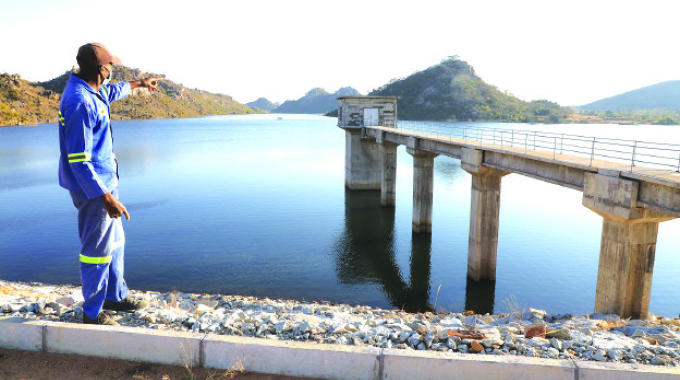Parastatal reforms: So little done

This is the motto for one of the leading Government schools, Prince Edward, and it aptly describes some disturbing situations obtaining in our economy in general, but more specifically in relation to parastatals.
The PE motto instills a sense of continuous, incremental achievement even when one reaches the pinnacle, thus doing away with dangers of complacency.
I am afraid there is not even much achieved with regards to parastatal reforms, a sore point for the economy.
While planning constitutes an important component of achieving one’s goals, it does not end there. It is more precisely just the beginning and those tasked with parastatal reform need to be reminded of this simple fact.
Over the last decade or so programmes and strategies have been lined up to restructure the loss-making ventures and the latest one having been crafted last year under which at least 10 parastatals were identified as the first to go through a metamorphosis.
Mid last year Minister of Parastatals and State Enterprises Gorden Moyo said by end of 2010, the first 10 would have been transformed by this has not happened yet for one reason or the other.
Zimbabwe has 87 parastatals and State enterprises, the bulk of which are underperforming.
At least 15 of these have been earmarked for privatisation, 18 for commercialisation, 34 for restructuring while the fate of the remaining 11 was still to be enunciated.
The cemetery, we are told, is full of unfulfilled dreams and unachieved goals. The reason? There was no action to support the conception.
Would it not be a sad commentary if our parastatals were to meet the same fate due to lethargy?
Originally, parastatals were conceived to cushion the general populace from the tentacles of profiteers by providing social services at affordable rates or prices.
Coming from an era where blacks were inhumanely marginalised, very few can argue against the logic.
However, at the rate at which we are going, parastatals are shortchanging the very people they are supposed to serve.
In fact, the standard of services has plummeted to unsustainable levels, thus making service provision more expensive if one factors production hours lost, orders cancelled and reputations shattered-stresses induced by the unending inconveniences.
An assessment of service provision by Zesa and the National Railways of Zimbabwe, the Grain Marketing Board and the National Oil Company of Zimbabwe, for instance, substantiate my sentiments.
A look at the feedback we receive from readers everyday will show that they are really miffed by the poor service delivery.
You get trillions of complaints coming through on a daily basis, particularly where Zesa is concerned — no offence meant and I hope one taken Fullard Gwasira (Zesa corporate affairs manager). It’s just the reality on the ground.
Our parasitic parastatals also have the effect of draining the fiscus of its meagre resources which could otherwise be channelled to productive portfolios.
There are competing interests which the budget should cater for. Parastatals need not compound an already complex situation.
They tarnish the image of this country at a time when we are seeking investors.
Not many would want to sink money in an environment where the provision of such critical services as power supply are unpredictable.
A recent Unctad report shows that investment levels to this region plummeted significantly last year. This implies that Zimbabwe will need to do the best it can to attract a significant portion of investors that could come to Southern Africa this year.
Mediocre service delivery will be the greatest undoing in this instance.
Presently it has become difficult to plan as one is never sure when a particular service will be available and yet success in any venture hinges on the ability to plan and follow-through on such plans. And yet there is a paragon in the form of Dairibord. The milk producer was privatised in 1997 becoming the first State enterprise to go this route. Since then it has been performing well, declaring significant dividends to its shareholders.
Government sold its remaining 25 percent stake in 1998.
Factors such as increased efficiency and no budget burdens on the fiscus have also played well for Government.
Dairibord can fund its operations effectively and has remained a major player on the market despite increased competition from imported dairy products.
The firm was last year awarded the ISO 22 000: 2005 certification for high quality and continues to spread its tentacles into the region.
This is a classic example of how commercialisation or privatisation can benefit the economy.
Any turnaround entails doing things differently. There certainly is no way of getting different results when you continue doing the same thing over and over again.
Air Zimbabwe is a typical example of how not to do business:
- Retrenchees not paid.
- Pilots, engineers and other critical staff going on strike.
- Flights decreased spectacularly.
- Service at best intermittent and at worst nothing to write home about literally.
There is a clear and present danger of treating symptoms and not the cause and yet the solution is in sight.
Minister Gorden Moyo this week said he had no capacity to initiate the transformation because the jurisdiction of all the parastatals and enterprises lie with their respective line ministries.
We hear you sir, but this is an administrative issue that should have been sorted out by now. The ministries concerned should take the initiative and be more proactive in this instance.
We understand a State Enterprises Management Bill is currently being drafted to straighten out the whole process. We sincerely hope this will not take another decade.
Tempus fugit! (Time flies)
In God I trust








Comments